Real Estate Investment in 2025: Ideas, Insights and Opportunities
[Main banner]
Remember how everyone predicted the real estate market would crater after US followed by other countries, started raising interests back in 2022 – 2023? Well, the global real estate market hasn't really crashed – it's evolved. There were declines, but instead of a collapse, we've seen and keep seeing a technology-driven transformation in how people live, work, and invest in property.
Five Game-Changing Trends Reshaping Real Estate in 2025
The real estate landscape of 2025 looks wild, and four major forces are painting this new picture.
First up: inflation-caused construction costs playing tag with all-time highs. Materials? Expensive. Labor? Even more expensive. While this squeezes new housing supply in major markets, it's created a gold mine in renovation and property improvement. Sometimes, the best opportunities wear a fixer-upper costume.
Second, Western countries are watching a fascinating migration dance. Major economic hubs still magnetize immigrants, but locals? They're writing a different story. Some flee rising prices, others seek breathing room from growing immigrant communities. The result? Secondary cities are having their main character moment.
Third, tech keeps moving faster than your last Amazon delivery. Post-COVID, remote work isn't just a trend – it's a lifestyle. More folks from rich countries are eyeing sunny shores with friendly price tags. And here's the kicker – as AI and robotics take over more traditional jobs in the coming years, humans might not need to "work" in the classical sense at all. This could accelerate the exodus to places with great weather, decent ecology and like-minded community.
Forth, climate change is reshaping the real estate map whether we like it or not. While it might not strike as fast or harsh as some alarmists predict, it's steadily changing which locations offer the best weather. Today's prime spots increasingly face droughts, fires, and floods. The winners in real estate will be those who can spot which locations will become the next paradise, not just stick to places that top the lists today.
Fifth – and this one's a doozy – population collapse in developed nations is the elephant in the room nobody wants to discuss. Take South Korea, where the fertility rate's playing limbo with 1.0. When people stop making babies, who's going to fill all those apartments? It's a math problem that could reshape entire markets.
What sets 2025 apart? Location and economic growth aren't the only kings anymore. Success in real estate now rides on catching bigger waves – societal shifts, tech evolution, sustainability plays, and community dynamics. Sure, the old "buy and hold in good neighborhoods" strategy still works some places, but the real money? It's in seeing around corners, spotting where people will want to live and work before they know it themselves.
Where are the Best Renovation Options?
Think renovation in 2025 isn't good enough? Think again. While everyone chases shiny new builds, the smartest money often flows to places where history whispers from every corner. Ancient towns in Europe and Asia are packed with properties begging for a second chance.
Why renovation, though? Simple math. Historical districts in culturally rich areas rarely lose their charm, and you can't exactly build new "old" buildings. Plus, construction costs keep climbing while renovation often costs less per square foot. But here's the real kicker – governments worldwide are practically throwing money at people willing to breathe new life into their architectural heritage.
Target places where culture meets convenience, where government incentives meet growing demand. Look for towns gaining traction with digital nomads or retirees – they're often the canaries in the coal mine for the next renovation hotspot. Let's look at a few examples:
Italy's €1 Homes

Not if you play it smart. Italian towns like Sambuca in Sicily are literally selling homes for the price of an espresso. The catch? You'll need about €25,000-€50,000 for renovation, according to the Italian National Builders Association. But here's why it works: post-renovation values jump 50-60% thanks to tourism demand. In 2024 alone, foreign buyer transactions jumped 12% (ISTAT data). Digital nomads and retirees can't get enough of that dolce vita.
Japan's Akiya

Japan faces a fascinating problem – 8.49 million empty homes, says their Ministry of Internal Affairs. These "akiya" (vacant homes) often sell for under ¥3,000,000 ($20,000), especially in scenic spots near major cities. The Izu Peninsula near Tokyo? Perfect for digital nomads wanting that Zen garden view. The Japanese government actively supports foreign buyers here, making paperwork surprisingly smooth.
Spanish Rural Renaissance

Galicia and Andalusia hide centuries-old stone houses selling 30% below Spain's national average (Idealista data). With Spain's new digital nomad visa program pumping fresh blood into rural areas, these renovated properties are becoming hot commodities. Picture ancient stone walls with fiber-optic internet – that's modern Spain for you.
Climate Change and Real Estate: Finding Safe Havens in 2025

Let's dive deeper into what climate change means for real estate investors. While some areas face increasing risks, others might become tomorrow's prime locations. The trick isn't just avoiding danger – it's spotting opportunities where others see threats.
High-Risk Zones: Where Not to Park Your Money
The data paints a clear picture. NOAA projects sea levels to rise by another 0.3 meters by 2050. What does this mean in real estate terms? Parts of Miami, coastal Southeast Asia, and similar low-lying areas face a double whammy: increasing flood risks and skyrocketing insurance costs. Insurance premiums in these regions have shot up 20-40% in just five years, according to Swiss Re.
Meanwhile, the American West, Australia, and Southern Europe battle unprecedented wildfires. Property owners there face a nasty surprise: insurance companies either jack up rates or flat-out refuse coverage. It's not exactly what you want in an investment.
Tomorrow's Safe Havens: Where Smart Money Flows
Look for places combining natural climate resilience with strong economic fundamentals. A safe location means little without job growth and infrastructure development. The sweet spot lies where climate safety meets economic opportunity.
First thing to understand – elevation is your friend. Why? Higher elevation means lower climate risk. In the US, CoreLogic's data shows mountain states like Colorado maintaining strong demand. The same goes for elevated parts of the Pacific Northwest. In Europe, northern Spain and southwestern Germany are emerging as climate-safe zones.
But here's a less obvious play: the Baltic region and the Balkans. First might actually benefit from warming trends, turning previously "too cold" locations into comfortable spots with stable climates. The second is full of mountains – just get away from the coast.
Building Smart
Want to future-proof your investments? Think beyond location. The EU's Energy Performance of Buildings Directive now requires near-zero-energy buildings for new construction. This creates opportunity in two ways:
- Older buildings need upgrades to stay competitive
- Properties with climate-resilient features command premium prices
Tech That's Reshaping Real Estate: What Smart Investors Watch in 2025

Tech isn't just changing how we live in homes – it's revolutionizing how we build, buy, and manage them. Let's cut through the hype and look at what really matters for investors. Winners in 2025's market won't just pick the right properties; they'll pick the right technologies to find, manage, and profit from them.
AI and Robotics
Remember spending weekends driving around looking for deals? Those days are fading. AI platforms like Local Logic now spot undervalued properties before they hit the market. According to Deloitte, 48% of real estate firms already use AI for acquisitions. Why? Because machines catch patterns humans miss.
But here's where it gets interesting: humanoid robots are starting to show up on construction sites. McKinsey reports a 20% drop in labor costs and 30% faster build times with robotics. In places facing worker shortages, this isn't just cool tech – it's a game-changer.
3D Printing
Companies like ICON are printing houses. Yes, actual houses. They claim 30-50% cost savings compared to traditional construction. Dubai already has 25% of new buildings slated for 3D printing by 2030. The best part? These aren't just cheaper – they're greener, using new zero-carbon concrete formulas that ESG investors love.
Smart Homes
Smart features aren't optional anymore – they're expected. NAR data shows smart homes commanding 5-10% price premiums. Think beyond fancy thermostats though. For instance, IoT sensors now let landlords manage properties remotely, perfect for the growing short-term rental market.
Virtual Property Tours and Digital Twins
VR tours saved the market during COVID. Now they're standard. But digital twins are the next big thing – complete virtual replicas of properties that track everything from energy use to maintenance needs in real-time. Deloitte estimates they could cut operating costs by 35%.
Tokenization
Here's one that's still early but worth watching: property tokenization. Think of it like buying shares in a building, but on blockchain. The market could hit $1.4 trillion by 2030, according to Deloitte. The appeal? Lower entry costs and better liquidity than traditional real estate.
Think buying property is out of your league? Tokenization flips that idea on its head. Here's how it actually works: each property gets its own company (usually an LLC) that legally owns the building. This company then issues digital tokens – each representing a share of ownership. Buy a token, and you automatically become a part-owner of that LLC and get your slice of rental income or property value growth.
But here's what makes it game-changing – you can trade these tokens almost instantly on blockchain, unlike traditional real estate deals that drag on for months. The numbers? The market could hit $1.4 trillion by 2030, according to Deloitte. And it's not just crypto enthusiasts anymore – BlackRock and other Wall Street giants jumped in during 2024, proving this isn't some passing fad.
Demographics and Real Estate: Following the Population Waves in 2025

Looking for the next real estate boom? Follow the people. But not just any people – you want young people with rising incomes. Let's map out where demographics are creating real estate gold mines.
Young Blood: Where Youth Drives Growth
India's taking the population crown from China, hitting 1.42 billion with a median age of 28. Think about that – half the population is under 28. The World Bank says their middle class will grow 25% by 2030. What does this mean for real estate? Massive demand in cities like Bangalore and Pune, where tech jobs are booming.
Southeast Asia's telling a similar story. Vietnam and Philippines? Median age around 30, and their cities are exploding. Ho Chi Minh City's skyline grows weekly, while Manila and Cebu can't build fast enough to meet demand.
Immigration Nations: The Population Importers
Canada's playing a numbers game – targeting 500,000 new immigrants yearly by 2025. These aren't just any immigrants – they're skilled workers with buying power. Smart money isn't just watching Toronto and Vancouver anymore. Look at places like Halifax and Calgary, where housing costs half as much but growth is just as strong.
Australia's bringing in 270,000 people annually through 2026. But here's the twist – they're not all heading to Sydney and Melbourne anymore. Regional hubs like Gold Coast and Newcastle are seeing record growth.
Africa's Urban Explosion
Nigeria's population will hit 400 million by 2050 (UN data). Lagos already has a housing crisis – not enough homes for a growing middle class. Similar story in Ethiopia, where Addis Ababa's growing 6-8% annually (IMF data). The opportunity? Build for the middle class – they're growing faster than builders can keep up.
The Anti-Growth Warning Signs
But watch out for demographic cliffs. South Korea's fertility rate is hitting record lows. Japan's already there – entire towns emptying out. When population drops, so do property values. The lesson? Demographic decline can kill real estate faster than any market crash.
Special Zones and Emerging Markets: Where Bold Money Plays in 2025

Want to swing for the fences? Let's talk about places where governments are literally creating cities from scratch and regions hungry for development capital. But fair warning – these plays aren't for the faint of heart.
Saudi's $500 Billion Bet: NEOM
Saudi Arabia isn't just building a city – they're building the future. NEOM is a $500 billion mega-project that makes Dubai look modest. The numbers? Colliers MENA projects 15-20% annual growth in property transactions around Saudi giga-projects by 2025. Early investors in areas near similar projects saw property values triple within five years.
Special Economic Zones: The New Wild West
Prospera in Honduras shows what happens when you mix beach paradise with tax benefits. This private charter city on Roatán Island is attracting entrepreneurs and digital nomads faster than they can build housing. Similar zones are popping up globally – from Kazakhstan's Astana International Financial Centre to Georgia's Anaklia Port.
Africa's Tech Hubs
Forget what you think you know about Africa. Rwanda's Kigali Innovation City is attracting tech companies priced out of Silicon Valley. Ghana and Kenya are seeing similar tech-driven booms. The Africa Development Bank reports massive housing deficits in these growing tech hubs – meaning early investors could catch the wave of rising demand.
Global Real Estate Plays 2025: Your Action Map

After diving deep into trends, tech, and demographics, let's map out where the smart money's heading in 2025. Here's your global cheat sheet, ranked by risk-reward ratio:
Safe and Steady (Lower Risk)
- U.S. Secondary Cities: Think Austin, Raleigh, Nashville – solid job markets, steady appreciation.
- Canadian Cities: 500,000 new skilled immigrants yearly by 2025, focus on Halifax and Calgary.
- Australia & New Zealand: 270,000 annual migrants, booming regional hubs like Gold Coast.
Growth Markets (Medium Risk)
- Vietnam's Da Nang and Nha Trang: Rising middle class (26% by 2025), strong tourism.
- Thailand's Chiang Mai: Digital nomad haven, consistent rental yields.
- Indonesia's Bali and Beyond: Villa market booming with 90% peak season occupancy, digital nomad influx.
High Potential Plays (Higher Risk)
- Italian €1 Homes: 50%+ post-renovation appreciation potential in tourist areas.
- Neom, Saudi Arabia: Early-stage opportunities near the $500B mega-project.
- Japan's Akiya Properties: Vacant homes near major cities, government support for buyers.
Climate-Safe Bets
- The Balkans: Rising demand, natural climate resilience.
- Northern Spain: Temperate climate, growing digital nomad scene.
- Baltic Region Properties: Potentially benefiting from warming trends.
Remember the golden rule of 2025: Don't just chase yields – look for places where multiple trends converge. The best investments sit at the intersection of positive demographics, climate resilience, and tech adoption.
And if you want to enter the real estate market now, but don't know how, we have something to offer you. Tokenized real estate is your opportunity to understand the topic, invest your first money in this booming market starting from $100 and start earning your passive income from the growth of properties in price or from rent payments. Check out the Binaryx platform to learn more about equity investing in real estate and choose the perfect property to invest in.
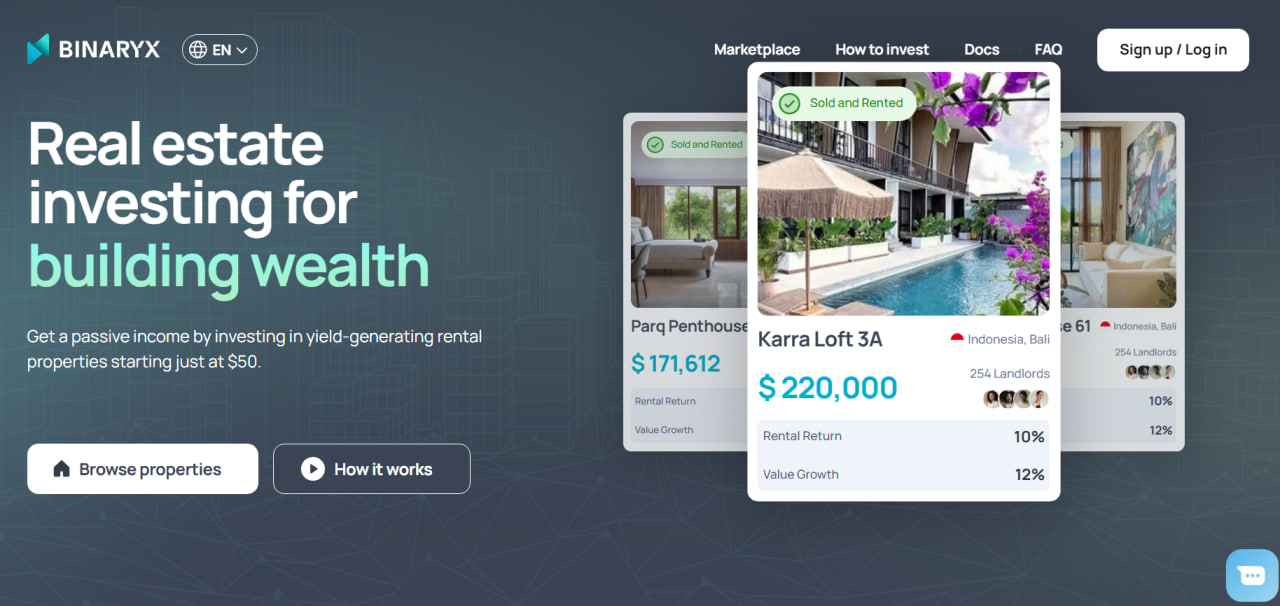
Articles you may be interested in



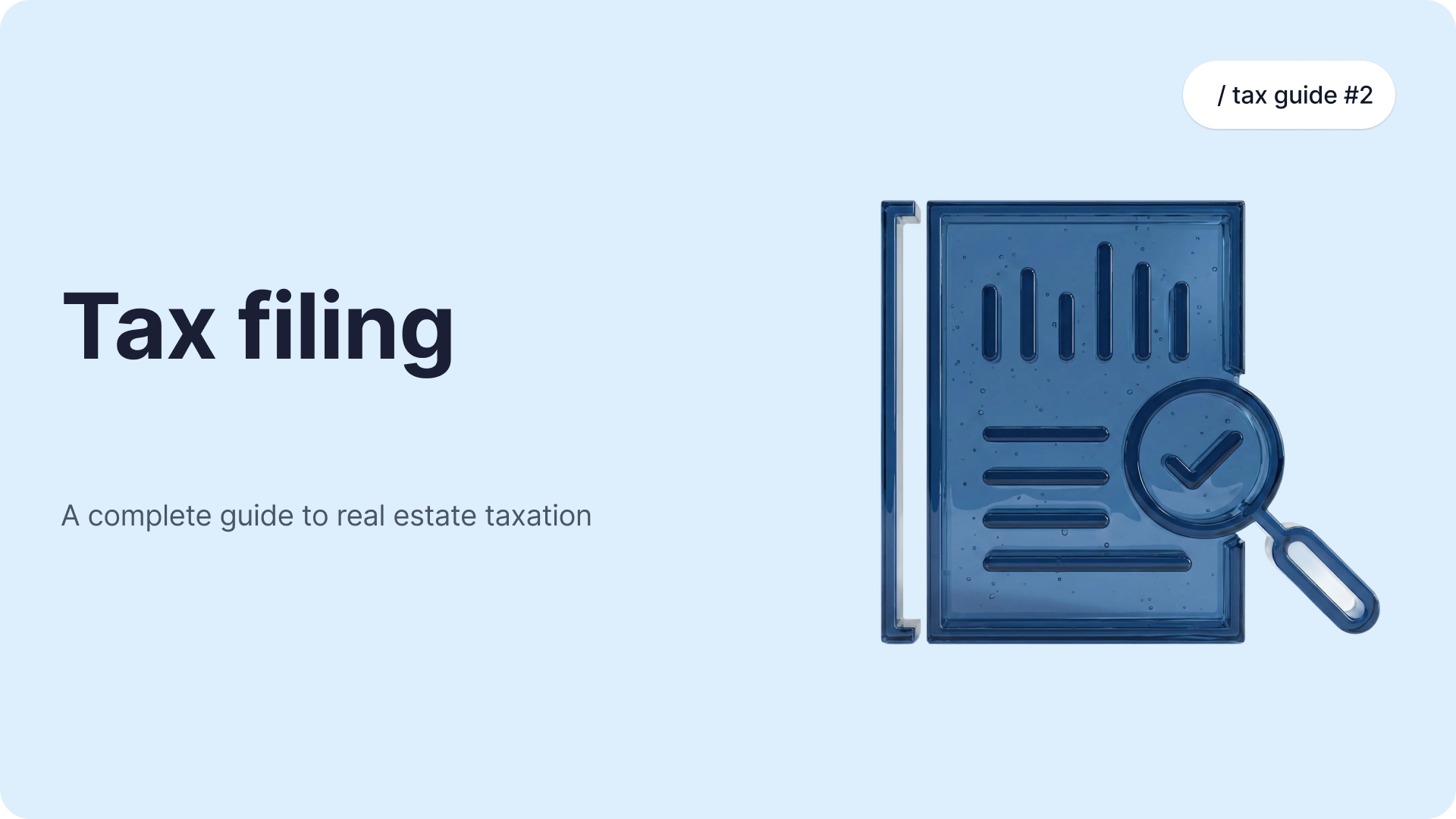
.png)
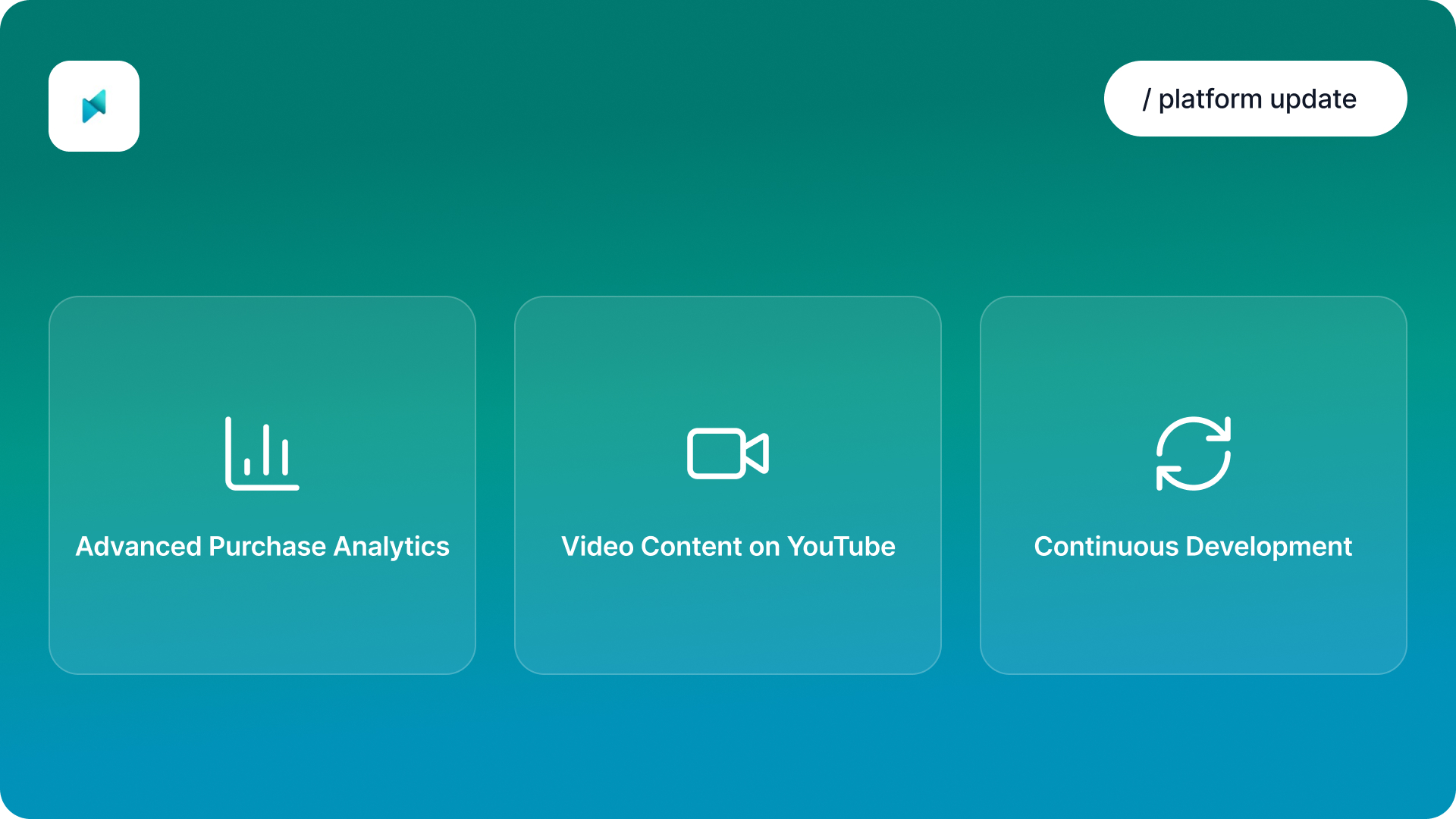

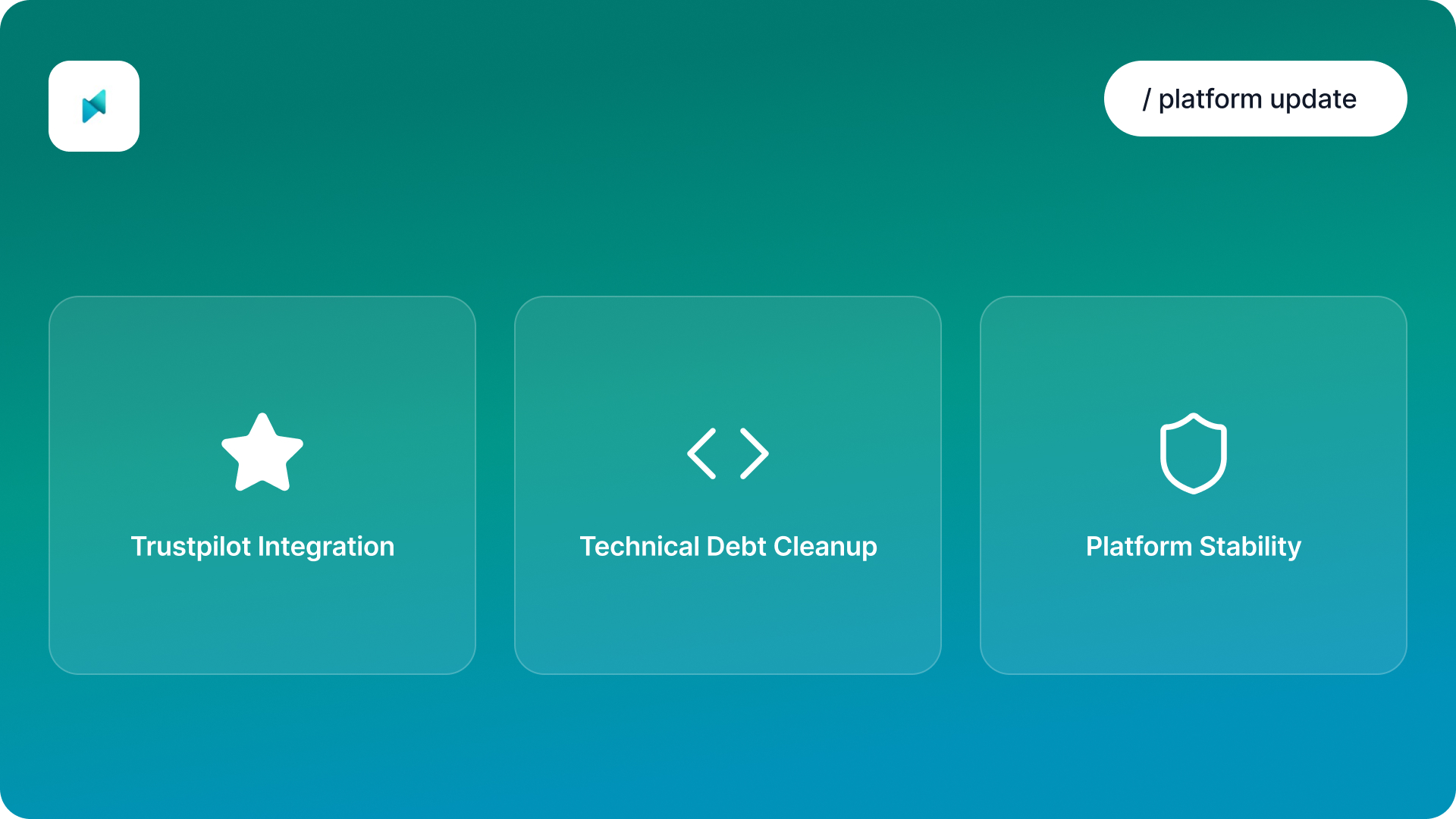
.png)

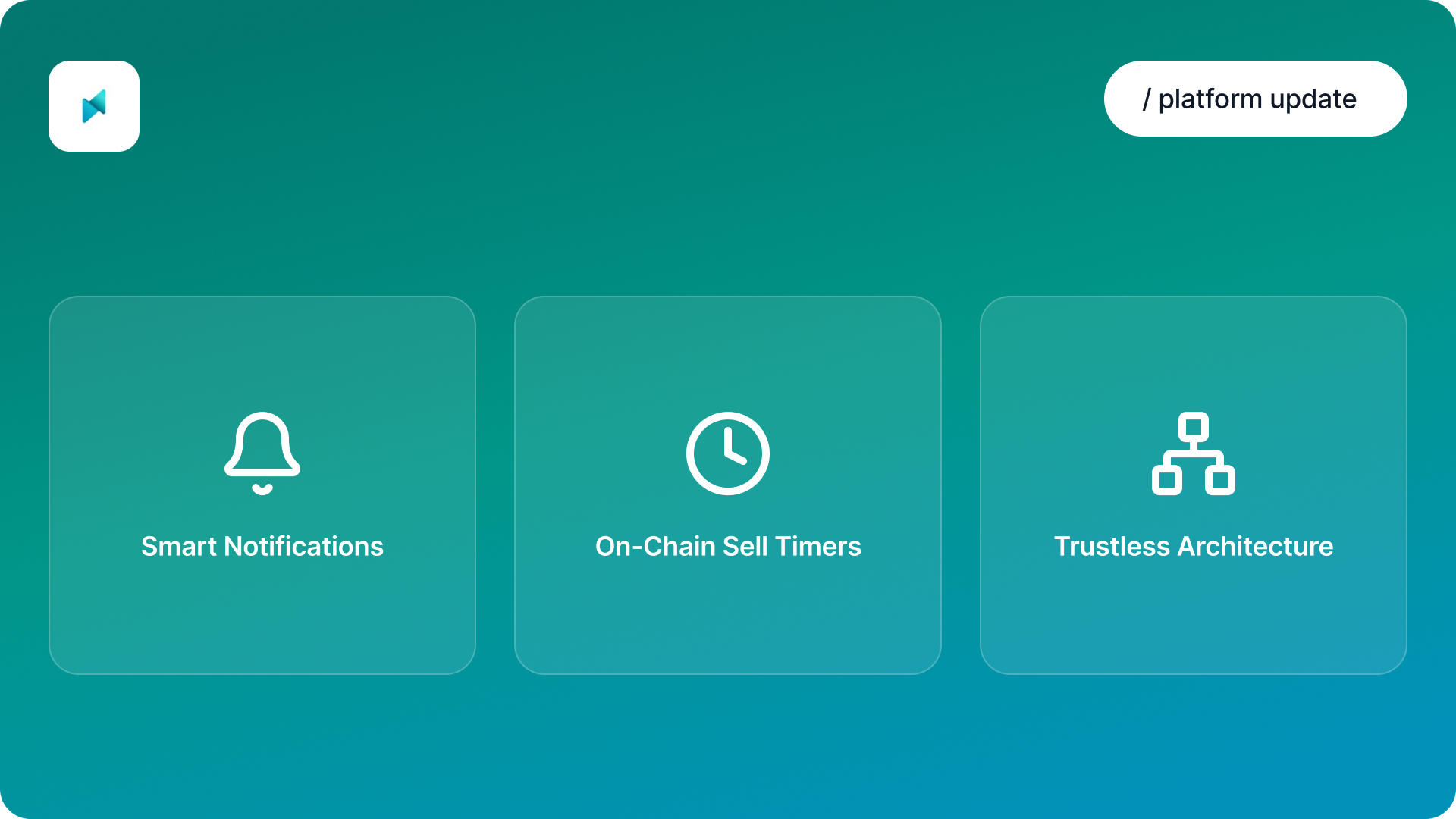

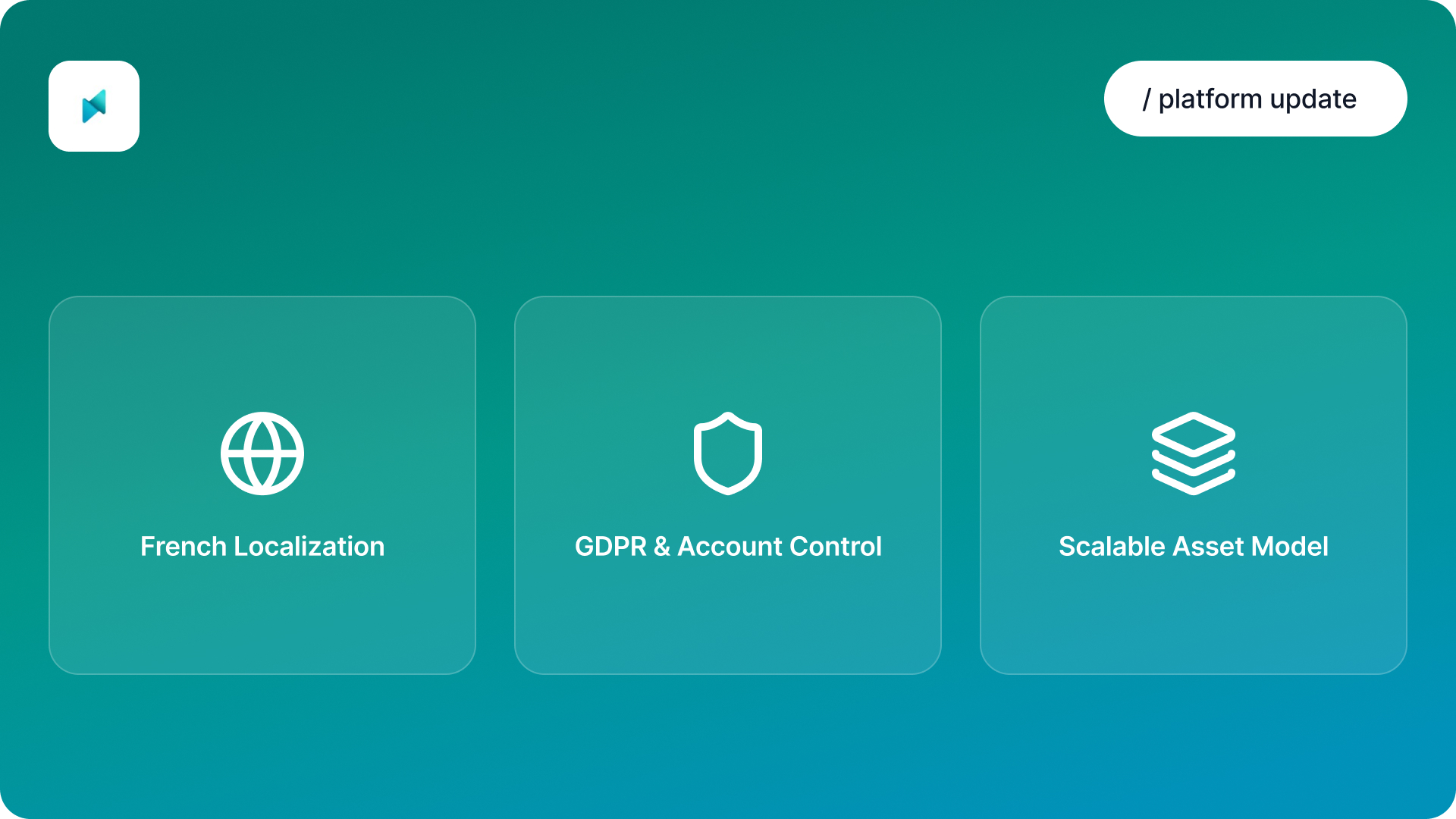
.jpeg)
.webp)